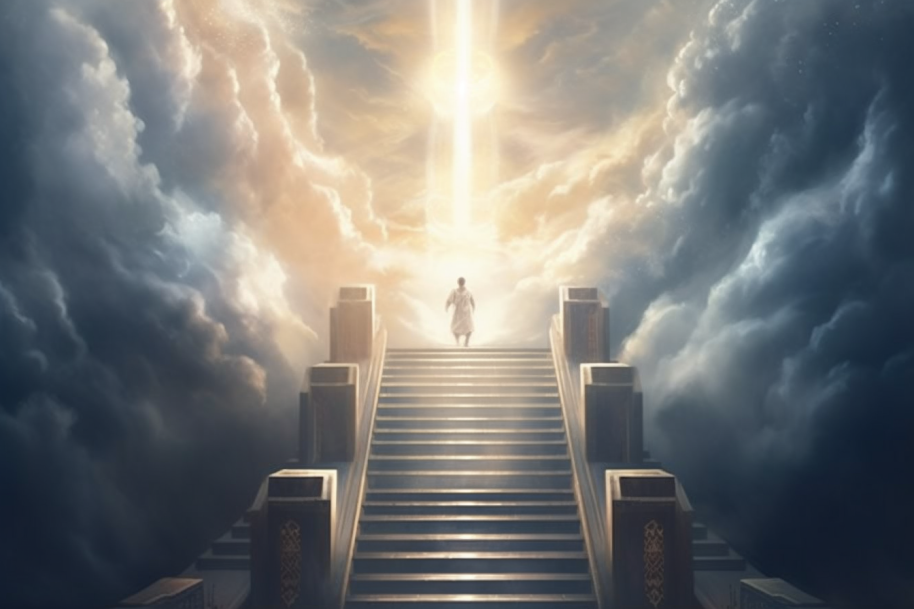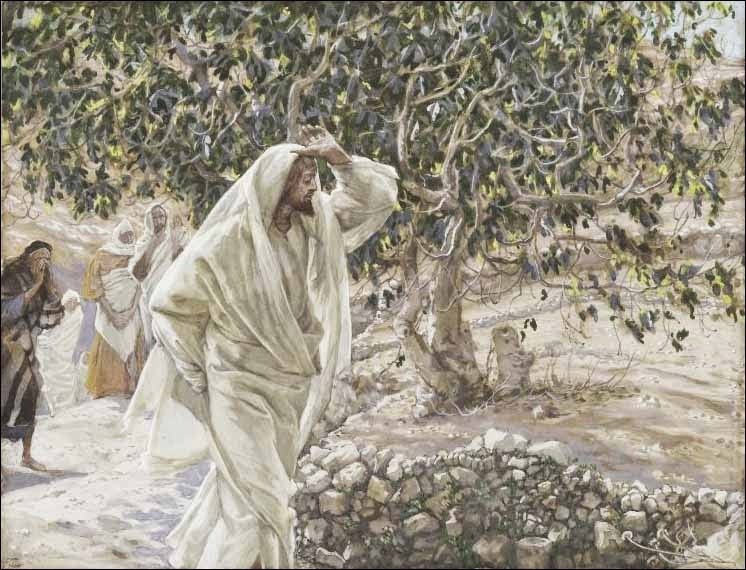How Soon After Death Do You Go To Heaven?
Have you ever wondered what happens to your soul after you take your last breath? As believers, we long to be in the presence of our Creator and spend eternity in Heaven. But how soon after death do you go to Heaven?
According to the Bible, the answer may surprise you. The journey to the afterlife is a mystery that has captivated the human imagination for centuries. Some believe in reincarnation, while others anticipate a final judgment. For Christians, the Bible offers guidance on what happens after death.
We believe that death is not the end but a transition to a new life. This article will explore the Bible’s teachings on the intermediate state and what believers can expect during this waiting period. So, let’s dive in and discover the secrets of the afterlife.

Believers’ Afterlife
As believers, we can take comfort in the fact that our souls will be in the presence of Jesus Christ in the blink of an eye without skipping a beat. This understanding of the afterlife is grounded in biblical evidence, particularly in 2 Corinthians 5:8, which states believers are absent from the body and present with the Lord after death.
Therefore, we can trust that our souls will immediately enter God’s divine presence, where we will experience eternal life and spiritual growth.
It’s important to note that our current understanding of Heaven is not the final destination for believers. While we will be in the presence of God immediately after death, we are still waiting for the final resurrection, where we will receive new bodies and live on the new heavens and earth.
This understanding is supported by 1 Corinthians 15:42-44 and Philippians 3:20-21. So, while our souls will be in Heaven, we are still waiting for our eternal life with God.
Understanding believers’ afterlife is grounded in biblical evidence and offers comfort and hope for those who follow Christ. We can trust that our souls will be immediately in the presence of God after death, but we also look forward to the final resurrection, where we will experience the fullness of eternal life.
As we wait for this, we can grow spiritually and deepen our relationship with God.
Intermediate State
The Intermediate State is the time between death and the final resurrection, where believers are fully conscious and with God but awaiting new bodies and the New Earth.
This state is necessary because the current earthly bodies cannot enter God’s eternal kingdom.
Why is the Intermediate state needed?
The purpose of the intermediate state is to provide a temporary resting place for believers until the final resurrection. This waiting period is significant because it allows for a deeper understanding of God’s love and mercy.
Here are some points to consider about the intermediate state:
- It’s supported by biblical evidence, including references to the dead being with Christ (Philippians 1:23) and the parable of Lazarus and the Rich Man (Luke 16:19-31).
- The intermediate state isn’t purgatory, where believers are punished for their sins. This is a common misconception among non-Catholics.
- The intermediate state isn’t the final destination for believers. They’ll receive new bodies and live on the New Heavens and Earth.
- The intermediate state is a time of joy and peace for believers in God’s presence and free from pain and suffering.
Understanding the intermediate state’s significance can bring believers comfort and hope as they face the end of their earthly lives. By dispelling misconceptions and focusing on biblical evidence, Christians can better understand what awaits them in the afterlife.
Is the Intermediate state a place to wait for Heaven?
When analyzing the purpose of the intermediate state, biblical evidence suggests that believers are fully conscious and with God during this time. It is not a place of punishment, like purgatory, and believers have no additional pain and suffering.
Instead, the intermediate state is a time of preparation for eventually receiving new bodies and living on the New Heavens and New Earth. To further understand the differences between the intermediate state and purgatory, refer to the table below:
| Intermediate State | Purgatory |
|---|---|
| A temporary state of waiting for the final resurrection | A place of punishment for sins |
| Believers are fully conscious and with God | People are punished for their sins |
| No additional pain or suffering for believers | Little biblical evidence for purgatory |
| A time of preparation for receiving new bodies and living on the New Heavens and New Earth | A doctrine of the Roman Catholic Church |
| Described in 1 Corinthians 15:42-44 and Philippians 3:20-21, Revelation 21:1-5 and Isaiah 65:17 | Not found in Scripture |
Overall, the intermediate state serves as a time of preparation for believers before entering the New Heavens and New Earth. While the timeframe debate may continue, biblical evidence suggests that believers are fully conscious and with God during this time, and it is not a place of punishment like purgatory.
Is the Intermediate state a place of punishment
Unlike purgatory beliefs in the Catholic tradition, the intermediate state isn’t a place of punishment. Instead, it’s a temporary state of being for believers who’ve already received salvation through faith in Christ.
While there’s little biblical evidence for purgatory, the controversy has led some to confuse it with the intermediate state. However, it’s important to note that believers who’ve trusted in Christ have already been forgiven for all their sins.
New Bodies and New Earth
Believers don’t just go to Heaven after death but eventually receive new bodies and live on a New Earth, as described in scripture. The Resurrection Hope is a central belief in Christianity, where the dead will be raised, and believers will receive glorified bodies.
The transformation process is described in 1 Corinthians 15:42-44, where our perishable bodies will be transformed into imperishable bodies. This means that our new bodies will not be subject to decay and death like our current bodies.
The concept of a New Earth is described in Revelation 21:1-5 and Isaiah 65:17, where it is revealed that God will make a renewed creation. This eternal home will be a place where believers can live in perfect harmony with God, free from pain, suffering, and death.
The transformation of creation will be a complete renewal, where everything will be made new, and the former things will pass away.
This is a source of immense hope for Christians, who eagerly anticipate living in this renewed creation. As believers, we do not have to fear death because we have the assurance of eternal life with God. Our hope is in going to Heaven and receiving new bodies and living in a renewed creation.
We have the Resurrection Hope, which assures us that death is not the end, but a transformation into a new and better life.
This hope gives us the courage to face life’s challenges, knowing that our eternal home is secure in God’s hands.
Purgatory Doctrine
Did you know that purgatory is a temporary state of purification for believers who lived unrighteous lives, according to the doctrine of the Roman Catholic Church?
The concept of purgatory has historical origins in early Christian writings, but it was officially defined in the Council of Florence in 1439.
The idea is that after death, a person’s soul goes to purgatory to be cleansed of any remaining sins before entering Heaven.
The Scriptural basis for purgatory is debated among scholars and theologians. Some argue that passages in the Bible, such as 1 Corinthians 3:15, suggest a place of purification after death.
Others contend that there is no clear evidence of a temporary state of punishment or purification in the Bible.
Protestants reject the doctrine of purgatory as unbiblical and claim that Christ’s sacrifice on the cross was sufficient payment for all sins.
Contemporary debate about Purgatory centers on its cultural significance and relevance to modern Christians.
Some argue that the concept of purgatory offers hope for those who couldn’t live a completely righteous life.
Others criticize the idea as a way for the Catholic Church to manipulate people into buying indulgences or performing other religious acts.
Regardless of one’s beliefs about purgatory, it remains a significant aspect of Catholic theology and tradition.
Importance of Afterlife
In Christianity, what comes after this life is just as important as the life we live now. Our eternal destination is determined by whether we’ve accepted Jesus Christ as our Lord and Savior.
This eternal significance should cause us to prepare spiritually for the afterlife by living a life that honors God and seeks His will. This perspective shift helps us live with purpose and hope, knowing that our time on earth is temporary and our true home is in Heaven.
The afterlife brings hope and comfort to believers, knowing they’ll be in the presence of God for all eternity. This assurance provides comfort in times of grief, knowing their loved ones are in a better place.
The Bible teaches that believers will have new bodies and live on a New Earth, a place where there’s no more pain, suffering, or death. This gives believers the hope of a perfect future where they’ll be with God forever.
In conclusion, the afterlife is an important aspect of Christianity that provides hope and comfort to believers. By preparing spiritually and living a life that honors God, we can have the assurance of spending eternity with Him.
The afterlife gives us a new perspective on life’s purpose and significance, knowing that our true home is in Heaven with our Lord and Savior.
Frequently Asked Questions
Is there a waiting period before believers enter Heaven?
If you’re wondering if there’s a waiting period before believers enter Heaven, there is some debate about the time frame.
While the Bible teaches that believers go to Heaven immediately after death, there is also the concept of the intermediate state, which refers to the time between death and the Second Coming of Christ.
Some cultural beliefs, such as the doctrine of purgatory in the Roman Catholic Church, suggest a temporary state of purification before entering Heaven.
Near-death experiences have also been reported where individuals claim to have seen loved ones and a bright light, which may indicate an immediate transition to Heaven.
Ultimately, the impact on the grief process varies for individuals and may depend on their beliefs about the afterlife.
Can non-believers enter the intermediate state?
Non-believers can’t enter the intermediate state, according to traditional Christian teachings. Salvation requirements are believed necessary for entry into Heaven and the intermediate state.
Biblical interpretations suggest that believers who have accepted Jesus Christ as their Lord and Savior have eternal life, while non-believers do not.
People of various religions have reported near-death experiences, but the interpretation of these experiences varies. Views across religions differ on the nature of the afterlife and the requirements for entry into it.
The role of grace is central to Christian teachings, where it’s believed that salvation is a gift from God, not something that can be earned.
Will believers recognize their loved ones in Heaven?
Recognition in Heaven is a topic that many believers wonder about. Will we recognize our loved ones? Will family bonds be the same?
The good news is that spiritual connections are not limited to the physical body, and believers can look forward to being reunited in bliss with those they love.
While the Bible doesn’t give a detailed answer, it does suggest that eternal memories will be a part of our experience in Heaven. So, while we can’t be sure of all the details, we can trust that God will make our time in Heaven beyond what we can imagine.
Is it possible for someone to go to both Heaven and purgatory?
It’s a debated topic whether it’s possible for someone to go to both Heaven and purgatory as dual destinations in the afterlife.
The Catholic Church teaches that purgatory is a temporary state of purification for believers who lived unrighteous lives, while Protestants reject this doctrine as unbiblical.
Divine judgment ultimately determines one’s destination after death, but there is diversity in beliefs about the afterlife and spiritual progression.
Some may argue that purgatory allows for continued growth and refinement before entering Heaven, while others believe that believers go directly to Heaven after death.
Regardless of one’s beliefs, the debate surrounding purgatory highlights the complexity and diversity of perspectives on the afterlife.
Will there be any physical pain or suffering in the intermediate state?
In the intermediate state, believers exist in a spiritual existence where they’re fully conscious and in the presence of God.
While there’s little biblical evidence for physical pain and suffering in the intermediate state, some cultural beliefs and theological implications suggest emotional healing may be necessary.
The idea of purgatory suggests a temporary state of purification for believers who lived unrighteous lives. However, the Bible teaches that Christ died for all sins, not just some of them, and believers are never apart from the presence of God after death.
Ultimately, the wait for new bodies and the New Earth is not the same as waiting for Heaven, and any pain or suffering in the intermediate state should be viewed through the lens of God’s ultimate plan for redemption and restoration.
Conclusion
So, how soon after death do you go to Heaven?
As a believer, you can rest assured that you will be in the presence of Jesus Christ immediately after death. However, you will still have to wait for the final resurrection to receive new bodies and live on the New Heavens and New Earth.
This waiting period is known as the intermediate state and is a time of rest and peace for believers.
It’s important to note that the doctrine of purgatory, which suggests a period of purification after death, isn’t supported by the Bible.
As believers, we can trust in the promises of God’s Word and the assurance of salvation through faith in Jesus Christ.
So, as you continue to live your life on this earth, remember the adage, “live every day as if it were your last,” and strive to live a life honoring God, knowing that your eternal home in Heaven is secure.

Sangtea Hmar is a passionate leader of the Youth Christian Fellowship at the Electric Vengthlang Presbyterian Church in Aizawl, Mizoram, India. He is the owner of Christiantone.com and is committed to spreading the word of God. He loves to mentor youth and help them grow in their faith.






